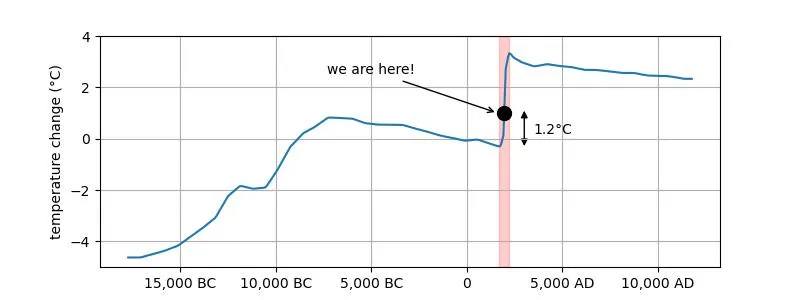Planetary Politics
More than Green Transition is needed
Norway and most other countries are struggling with the green shift. It is politically self-inflicted trouble. The industrial nations believe that the climate and nature crises can be solved through a large-scale focus on new economic growth in the ’new green industries'.
But these are not investments to save the climate and nature - they are investments to save the industrial society created by capital and technology.
‘Green transition’ is mostly about finding emergency solutions in the short term - such as:
-
push the greenhouse gases down into old oil wells instead of releasing them into the air
-
drive the same distance, if not longer, with electric cars instead of petrol and diesel cars
-
use the same amount of electricity if not more, but from wind turbines and solar panels
-
etc
We have not progressed far with this, but it is already becoming difficult, tiring and expensive - without the hoped for results appearing - greenhouse gas emissions are not decreasing, they are still increasing - after 28 rounds of COP (international climate negotiations - which started in Rio in 1992) .
But Norway still believes this will work out well - as long as we give full throttle in ’the green transition’.
Others - more and more - have begun to doubt. It is shocking to many that more of all the old business that created the big problems are the same business that will save us from the problems they created.
Some have already disguied ’the green transition’ - it is not a solution, it is just a postponement in order not to have to take the problems properly seriously.
When the scale and seriousness of the climate and nature crises really dawn on us, we will finally understand that we have to look around for a new social model, not just new technologies.

Figure: Industrial civilization meets the wall
Two questions arise:
-
What is fundamentally wrong with the Western societal model?
-
How can we set a new course towards better societal organisation?
Some social principles we now govern according to must be discarded - and other social principles that we now lack must be introduced. This transition process will certainly be both demanding and full of conflict.
What principles are we talking about?
We know that industrial civilization (capitalism) has been a formidable success - on its own principle (‘profitabilty reigns’) - but not on the planet’s. It is this success that must now be reigned in.
Our economic system has taken too many risks - that must stop. We have created an economy that has grown far more than the climate and nature can tolerate - that must stop. We must move from limited liability enterprise and innovation to responsible frugality and conservation. We must give back much of what we have conquered and plundered from nature.
What is it about capitalism that has made it such a violent growth machine - with such drastic consequences?
Let me focus on one thing: the ability to concentrate financial resources in a few hands through allowing ’limited liability’. The financial power of the big companies has become absolutely extreme. We have political democracy, but not economic democracy.
Legal role reversal
The companies are allowed to do what they want and as much as they want - as long as they stay within the current regulations. Our laws and regulations have failed to stop companies from destroying the climate and nature.
The principle has been that ‘what is not forbidden is permitted’. But the legislature has no way of foreseeing all the unfortunate consequences of the companies’ activities and banning them in advance.
We must reverse the burden of proof - what the companies cannot prove is harmless should not be allowed. The principle must be enshrined in the constitution.
We need to take less risk
We need to move away from ‘cheering on the entrepreneurs’ and throwing subsidies at them.
We must become fundamentally skeptical of all innovation.
We have to turn the thinking around - cheer for those who manage with what they have, instead of those who constantly need something new. Cheers to the skeptical and cautious, not to the enterprising and uncritical.
When new ideas that at first glance look good appear, society must take responsibility for critically clarifying all possible impacts and risks. Only when the safety is documented is the green light given for production.
Whether innovations should be implemented is a societal decision - not something that should be left to the individual entrepreneur or company.
Liability must be complete and personal, not impersonal and limited.
If such a reigning in of the companies’ operations is not enough - then they must be crushed - the company legislation repealed - only unlimitedly responsible units are allowed to run production. Less strong financial companies will do less damage.
Democratic Rationing must replace Money-Governed Markets
Our economic system has not only created enormous growth, it has also created enormous inequalities. Markets allowed to operate freely over time generate economic inequalities - a few winners and many losers.
A sustainable social order requires equality - not inequality.
Democratic Rationing involves the allocation of limited resources per head instead of per dollar.
When we have to manage with less, we have to replace markets with rationing.
Summary: Principles of Planetary Politics
-
Enshrining the precautionary principle in the Constitution
-
What is not permitted to produce is forbidden to produce
-
Impact assessment and life cycle analysis prior to the start of production
-
Resource pooling without limitations in the individual participants’ overall liability
-
Economic democracy in production and democratic rationing in distribution